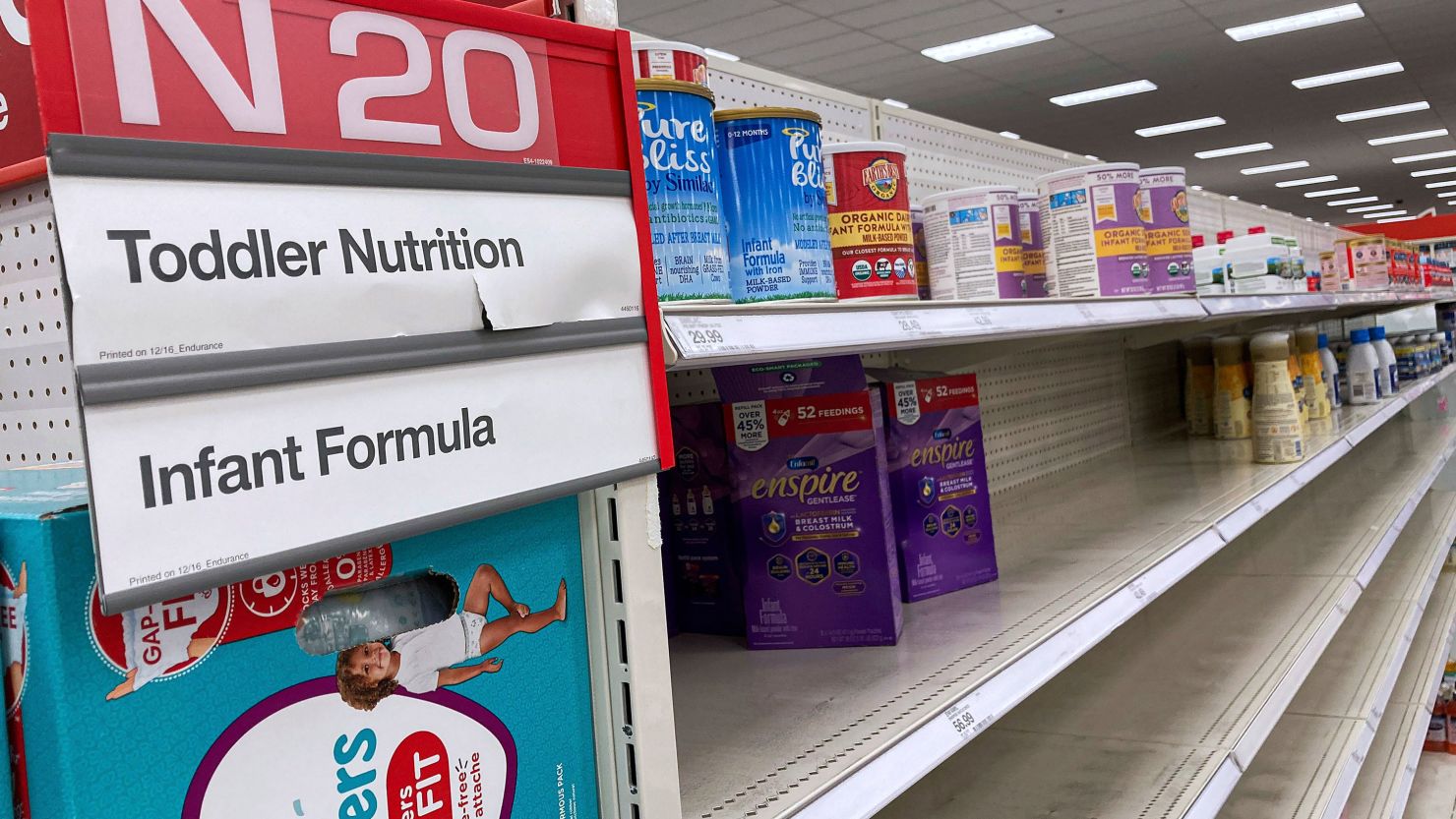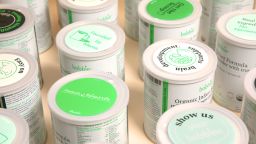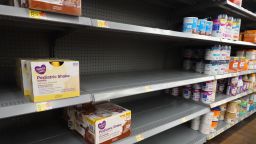Bryan Lambillotte knows the anxiety-induced hunt for baby formula all too well amid the ongoing national shortage.
He and his husband Chris are new parents to 2-month-old twins Brecon and London, who have been formula-fed since birth. The couple chose not to have their surrogate breastfeed them because they wanted the babies’ diets to stay consistent.
Lambillotte has searched online retailers and manufacturers’ websites for the formula instead of panic-driving store-to-store around San Diego. But by the time he gets to the check-out on most websites, the products are unavailable, he told CNN.
The worsening nationwide baby formula shortage is affecting parents coast to coast, including those who choose not to or cannot breastfeed and those whose medically fragile children can’t tolerate other nutrition sources. Beyond scouring the internet, parents tirelessly search store shelves near and far daily, coordinate formula exchanges through Facebook pages and spend countless hours – and sometimes huge sums of money – to make sure their children have food.
The problem, rooted in the tight supply chain, is exacerbated by a production halt at an Abbott Nutrition facility in Michigan. Abbott is seeking to restart the plant after it recalled three popular brands of powdered infant formula in February following reports four infants who ate formula manufactured at the facility got sick with rare infections caused by Cronobacter sakazakii bacteria and died.
Other manufacturers now say they’re producing at full capacity and making as much formula as they can – but it’s still not enough to meet demand.
Counting cans and numbering days
After experimenting with a few different brands of formula, Lambillotte found one that agreed with his twins, but with the shortage, finding it has been hit-or-miss, he said. On a recent trip to a Target in San Diego, he got lucky, documenting his experience on TikTok.
The shelf had only six cans – so he took three for his family and left three, knowing another desperate family was probably around the corner.
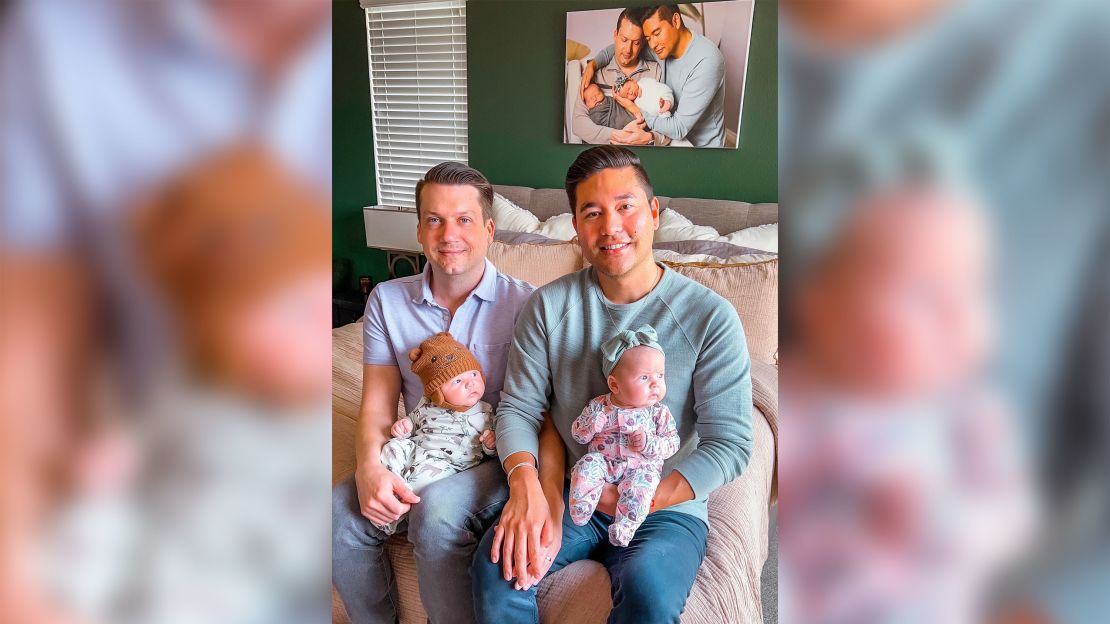
“Even though my babies come first and foremost and I would do anything for them … at the same time, I wanted to make sure that I was thinking of other families that were struggling in need as well,” he said.
Indeed, retailers including CVS and Walgreens are limiting the number of formula cans US customers can buy per transaction. Target has limited online purchases of the products.
In Georgia, Courtney Houston breastfed her 11-month-old daughter Raelyn until last week, as she couldn’t physically produce anymore, she said. Even before the major recall, she’d started noticing a formula shortage in Dawsonville, 60 miles north of Atlanta, she said.
After experimenting with a few brands, going to grocery stores every day, getting family and friends to check their local stores and even venturing to other towns to check supply, Houston transitioned Raelyn to cow’s milk. The American Academy of Pediatrics recommends infants be fed breast milk for the first 6 to 12 months.
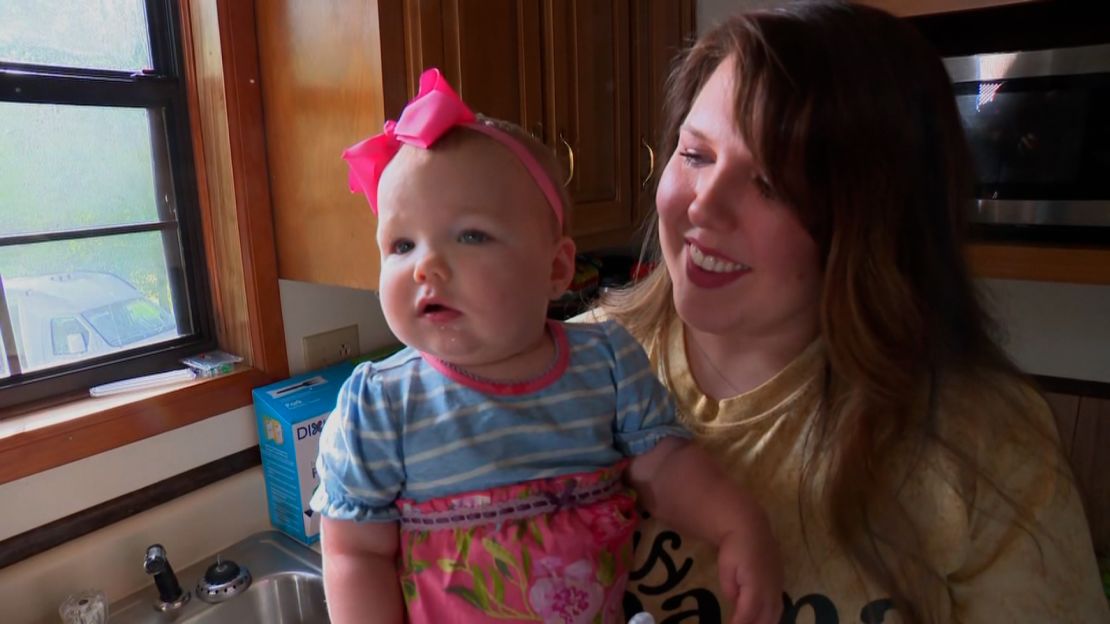
“It would get to the point when you go to a store you just cry,” Houston said. “And that sounds crazy and pathetic and people are like, ‘Well, you can just try a different brand or try a different type,’ and we tried.”
Ana Estrada’s twin daughters were born prematurely, at 25 weeks. One of them, Regina Orozco, only weighed 14 ounces and spent nine months in the hospital with health complications that made it impossible for her to eat anything by mouth.
Now 2, Regina exclusively relies on formula and eats through a feeding tube, and doctors have told Estrada the child may need to survive on formula for years, she said.

The family, in Katy, Texas, now gets half the hypoallergenic formula Regina needs through health insurance, said Estrada, who’s been trying to supplement the difference herself. But the formula isn’t sold in stores, and substitutes haven’t worked well.
Estrada now has eight cans, which will last her a little over two weeks, she said. But the formula shortage worries her.
“There’s people on eBay actually reselling formula, but it’s like three cans for $200 or something like that. And two cans is only going to last for four days, so that’s not going to solve my issue for the month,” she said.
“It is so frustrating that nothing seems to be done and not enough attention is being given to the issue when there are many medically fragile babies and kids that cannot survive without these special formulas,” she said. “We’re scared that we might run out of options.”
Alex Hutkin, the dad of 4-month-old twins Chloe and Nicolas, also is trying to find formula to supplement what his health insurance doesn’t provide, he told CNN. Born prematurely, Chloe spent 64 days in a newborn intensive care unit near their home in Arlington, Virginia; Nicolas spent 84.
Just after the pair were born, they ate donor milk from a milk bank until Hutkin’s wife’s supply came in. In the hospital, Chloe and Nicolas partially ate breast milk and partially ate formula. After they were discharged, they moved to formula only.

“It’s pretty hard to build up a supply breast milk supply for twins, and it’s really difficult to do when you’re working and it’s just a lot of pressure on my wife,” he said. “So she made the decision to suppress her milk supply, and they’ve (the twins) been on formula since they came home.”
Nicolas is still on a feeding tube, so his formula is provided through the family’s health insurance, Hutkin said. The twins eat essentially the same formula that’s geared toward premature babies, he said, but it has been especially difficult to find in its powder form, which is what they need for the caloric content.
“Just seeing the shelves just bare, it’s pretty nerve-racking, especially when you start getting down to your last couple of cans and you’re just not sure what you’re going to if you can’t find that formula,” he said.
“We’re in a situation where our children are on this formula because of the calorie content of it – not because they have food allergies – so if we really needed to, we could put them on a different formula – but only if we needed to … There are a lot of families that don’t have that option.”
CNN’s Parija Kavilanz and Danielle Herman contributed to this report.

